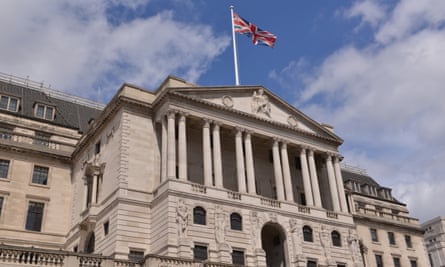The pound has hit a record low against the dollar after the sweeping tax cuts announced by the chancellor on Friday. Here we explain why sterling is falling so steeply, and what it means for households and businesses.
What is a currency crisis?
When the pound suddenly begins to lose value against rival currencies in a steep decline. A sudden and sharp drop in the pound creates uncertainty, throwing the plans of UK businesses that import and export goods into disarray. They expected to pay a specific sum for imports and get a certain price for goods and services they sell abroad. All that changes when the currency falls. If the pound is worth less, the cost of importing goods from overseas goes up.
What does it mean for the UK and consumers?
A weaker pound means the cost of goods and services that are imported to the UK are more expensive. That means price rises for UK consumers who buy foreign goods, and it means your money won’t go as far if you travel, in this case to countries that use the US dollar.
Oil is one of the key goods Britain imports and it is priced on international commodity markets in dollars. A weak pound will make filling up your car with diesel or petrol more expensive. Gas is also priced in dollars.
 View image in fullscreenA weak pound will make filling up your car with diesel or petrol more expensive. Photograph: Nathan Stirk/Getty Images
View image in fullscreenA weak pound will make filling up your car with diesel or petrol more expensive. Photograph: Nathan Stirk/Getty Images
The UK also imports more than 50% of its food, so the cost of everything from courgettes to bananas goes up. There will also be pressure on companies that sell electrical goods such as iPhones to increase the retail price. The headline rate of consumer price inflation, which recently dipped slightly to 9.9%, would start to go back up again.
Why is it happening?
International investors appear to have been panicked by the UK government’s decision to make sweeping tax cuts, which are to be paid for by higher government borrowing. Households are expected to spend the extra money they have as a result of the tax cuts, increasing the demand for goods and services and driving inflation higher. Kwasi Kwarteng’s pledge at the weekend to cut taxes further in the new year has only heightened fears of inflation shooting up again.
Investors are also concerned that the government wants to pay the bill for tax cuts with a huge amount of extra borrowing. Most economists do not believe tax cuts pay for themselves, leaving the UK with higher debts over the long term.
The former chancellor Rishi Sunak had pledged to bring down the annual spending deficit and the UK’s overall debt. Now both measures are going in the opposite direction.
Part of the pound’s weakness is the strength of the dollar, which has been rising as the US central bank, the Federal Reserve, aggressively rates. The pound sell-off has accelerated, however, since the chancellor’s mini-budget on Friday.
What can be done?
 View image in fullscreenWhat will the Bank of England do after the pound’s plunge? Photograph: Thomas Krych/Sopa Images/Rex/Shutterstock
View image in fullscreenWhat will the Bank of England do after the pound’s plunge? Photograph: Thomas Krych/Sopa Images/Rex/Shutterstock
The next step is likely to be taken by the Bank of England, which could raise interest rates by more than previously expected. It is possible the Bank might announce an emergency increase – before its next scheduled policy decision on 3 November. Higher interest rates attract savings deposits to the UK and tend to increase the value of the pound. However, they also increase the cost of borrowing for households and businesses.
In the past, governments have sought to reassure markets by announcing how they intend to cut Whitehall spending budgets to balance the books.



Leave a Reply
You must be logged in to post a comment.